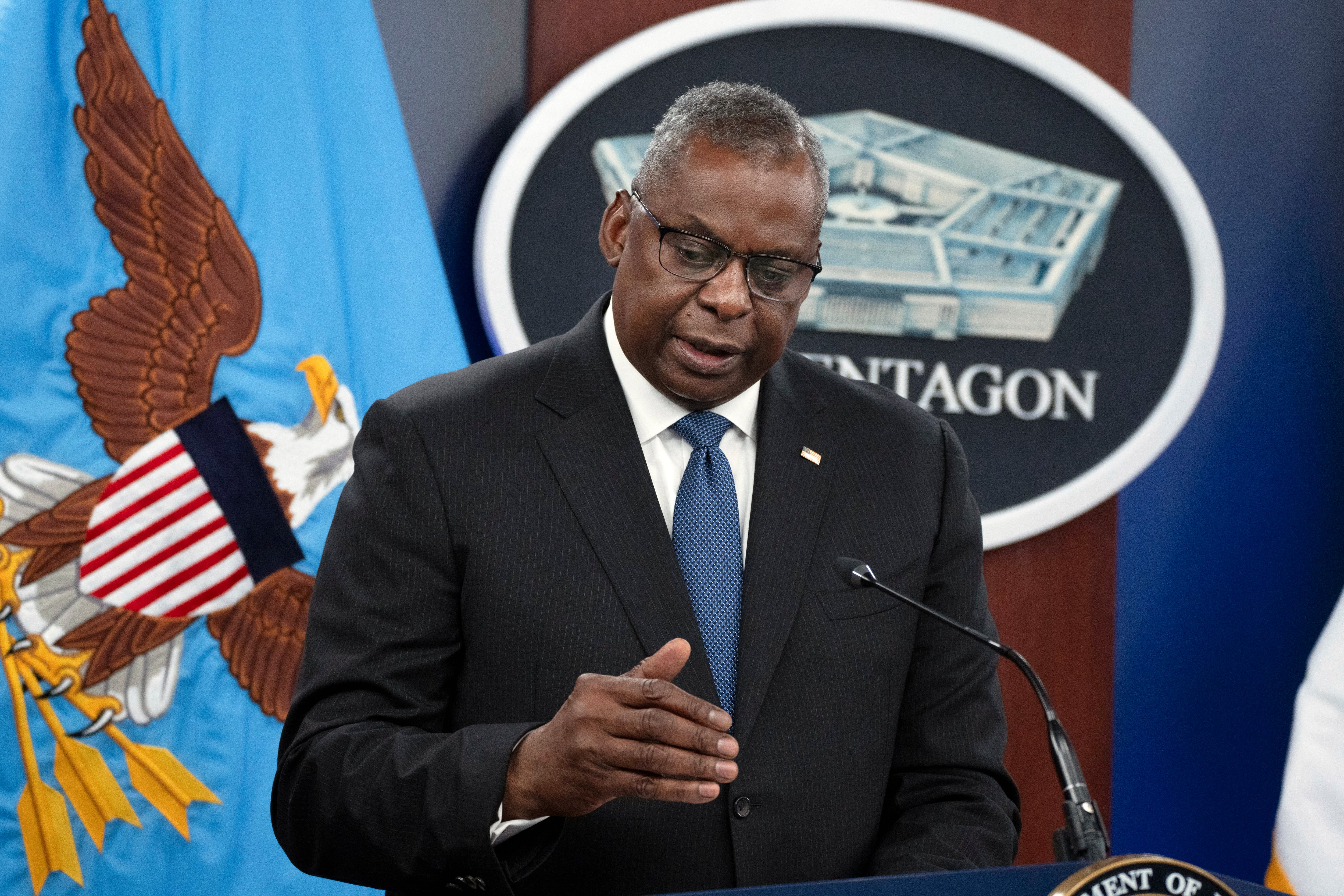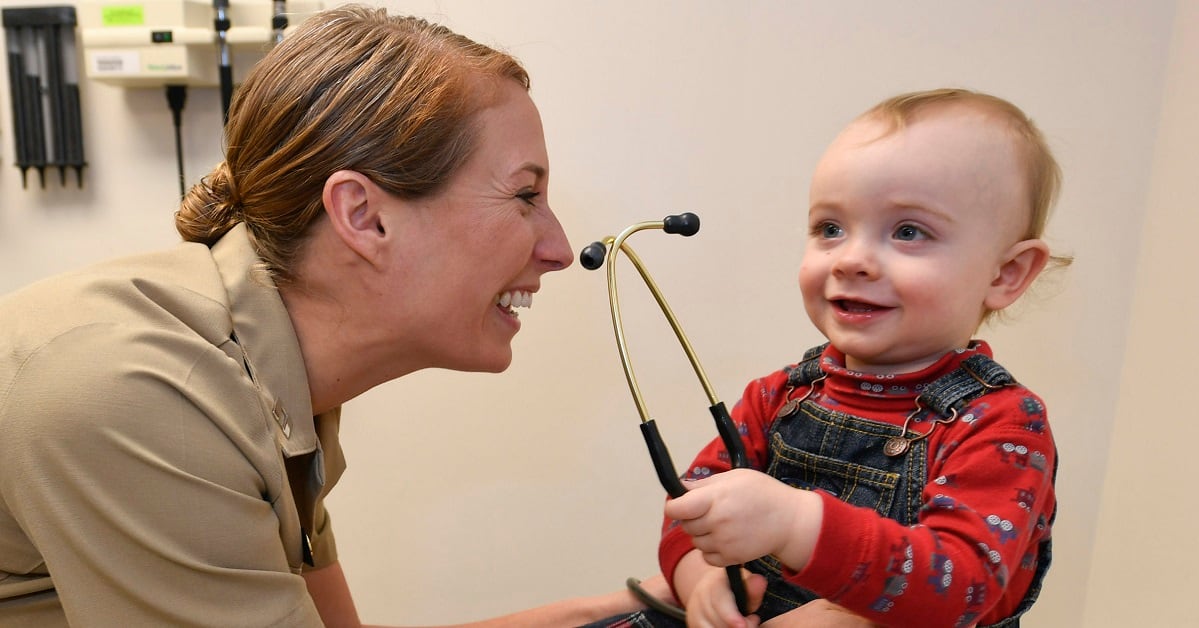Defense Secretary Lloyd Austin told reporters Thursday, during his first Pentagon briefing in two years, that he did not direct his staff to conceal his January hospitalization from the president or the public.
He did concede that he is a private person and that he did not initially want to share his cancer diagnosis, adding that while he doesn’t believe he has created a culture of secrecy in his office, that his staff might have felt they were acting in his best interest by concealing his health status for days after he went into Walter Reed National Military Medical Center on Jan. 1 with symptoms of a blood infection.
“What I’ve learned from this experience, taking this kind of job means losing some of the privacy that most of us expect,” Austin said. “The American people have a right to know when their leaders are facing health challenges that might affect their ability to perform their duties, even temporarily.”
And while Austin didn’t give his staff instructions on how to handle his absence, he conceded that “I think there will be security officers ... other staff members who may perceive that they’re doing things in my best interest,” he said.
He also called the failure to notify the president about his condition “a mistake.” The White House learned on Jan. 4 that Austin had been hospitalized, and on Jan. 9, learned that he had been treated for cancer when the Pentagon made the public announcement.
“Again, it’s more about privacy than secrecy,” Austin said. “In my case, I should have informed my boss. I did not. That was a mistake.”
His prostate cancer diagnosis in early December “shook” him, Austin said ― particularly as the illness disproportionately affects Black men, at a rate of one in six versus one in eight.
“Frankly, my first instinct was to keep it private,” he said.
RELATED

Austin is not alone among cancer patients in wishing to keep such diagnoses to themselves, according to the City of Hope Cancer Center.
“Many patients don’t want cancer to define them as someone different than they were before,” the center wrote in a blog post last month.
The Pentagon is in the midst of a review of how it handled Austin’s hospitalization. Austin said that new policy will require notification of both the deputy secretary and several White House officials when the defense secretary is incapacitated and needs to pass controls to the deputy.
Deputy Defense Secretary Kathleen Hicks assumed Austin’s authorities multiple times during his initial hospitalization, during which she was on vacation in Puerto Rico, but wasn’t informed of why she was in charge.
The cancer was first detected by blood test in late 2023, which Austin’s doctors had been monitoring regularly. He underwent a prostatectomy on Dec. 22, but began experiencing leg and abdominal pain, fever and shallow breath by Jan. 1, when an ambulance brought him to Walter Reed.
A member of his security team informed his chief of staff on Jan. 2, who did not informed President Joe Biden or Congress until she returned from sick leave on Jan. 4. In the meantime, a small number of staff at the secretary’s office were aware of the hospitalization.
Pentagon spokesman Air Force Maj. Gen. Pat Ryder told reporters Jan. 8 that he first learned of Austin’s condition on Jan. 2, when he was informed by Chris Meagher, Austin’s assistant for public affairs.
Ryder has said he regrets not asking more questions or pushing for a public release of information. The Pentagon waited until Jan. 5, when Austin was about to formally resume his duties from his hospital bed, to put out a statement that he had been hospitalized for complications following an elective medical procedure.
Austin remained at Walter Reed until Jan. 16, then worked from home before returning to the office on Monday. He is still experiencing leg pain, he said. Austin has been getting around the Pentagon with the help of a cane, and was driven to the Pentagon briefing room on Thursday via golf cart.
Asked whether his office would release the results of the review, he said he committed to sharing “as much as possible,” outside of the classified information about Pentagon communications.
Lawmakers have called for a public hearing to ask Austin questions about his health and his handling of his hospitalization. A date has not been set.
Meghann Myers is the Pentagon bureau chief at Military Times. She covers operations, policy, personnel, leadership and other issues affecting service members.




